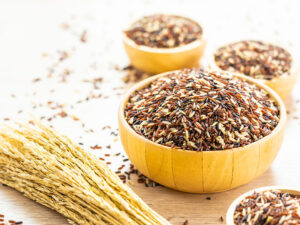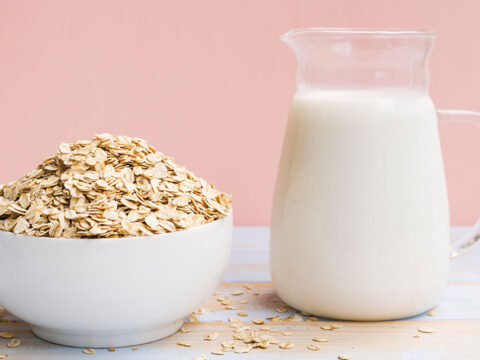
Why You Haven’t Hit Your A1C Goal Despite Following a Strict Diabetes Treatment Plan
November 23, 2022
How a Mild Flu Can Be Lethal with Diabetes
November 23, 2022
India is presently facing a triple burden of obesity, prediabetes, and diabetes. Unhealthy eating and lack of physical activity have been linked to the development and progression of type 2 diabetes mellitus (T2DM). Despite dietary recommendations in place, individuals are consuming unsuitable types and insufficient amounts of dietary fibre, which needs to be corrected at the earliest. Several studies have been conducted by experts to review as well as report the role and importance of high dietary fibre in diabetes prevention as well as diabetes management, while simultaneously offering practical guidance on the use of high-fibre foods in your daily diet.
Fibre is an essential component of a healthy diet and can offer a wide range of health benefits.
We all need the right amount of fibre to ensure that our bodies function like a fine-tuned engine. However, most individuals in the United States obtain only around half the fibre that they need each day. Fibre is a type of carb that is found primarily in fruits, veggies, legumes, and whole grains.
Is Fibre Good for Diabetes?

If you have prediabetes or diabetes, fibre is your best friend because it ensures that your blood sugar levels are in control, besides helping in weight management. Moreover, it can lower your risk of heart disease, which is a common complication seen in individuals with T2DM.
- Effective Control of Blood Sugar Levels: Because the human body is unable to fully absorb and break down dietary fibre, its intake does not cause blood sugar spikes the way other unhealthy carbs can. This feature can help in keeping your blood sugar in the target range.
- Protection of Your Heart: Fibre inhibits your body from taking in some cholesterol and fat, thus lowering your low-density lipoprotein (LDL cholesterol) and triglyceride levels to successfully reduce your risks of developing heart disease.
- Attainment of Optimum Digestive Health: Fibre cleans your digestive tract. It helps in cleaning out harmful bacteria and the build-up of others to significantly improve gut health.
- Optimum Weight Management: Because fibre cannot be digested, it moves through the stomach slowly, ensuring that you feel fuller for longer. Moreover, many diabetes prevention foods, which are high in fibre, tend to be low in the amounts of calories, thus helping in weight loss. This goes a long way in diabetes prevention and management.
Importance of Dietary Fibre in Diabetes Prevention and Management According to Research
Study 1
According to one review, there exists evidence that intake of dietary fibre, especially through consumption of cereal fibres, can be beneficial in the prevention of T2DM. That said, these results must be considered with caution on account of the statistically significant heterogeneity. In addition, a small reduction is seen in fasting blood glucose concentration as well as a small reduction in HbA1c levels, especially for those individuals with T2DM who add psyllium or β-glucan to their daily diet. Hence, individuals with T2DM must be encouraged to increase their intake of fibre supplements or fibre-rich foods, such as high-fibre cereals.
Study 2
Another study found that high-fibre diets are a vital component of diabetes management, leading to improvement in the measures of glycaemic control, body weight, inflammation, and blood lipids. Moreover, a reduction in premature mortality was also observed. These health benefits were not restricted to any specific type of fibre or to any specific type of diabetes and were quite apparent across the wide range of intakes, although significant improvements in glycaemic control were seen in those moving from low-to-moderate or high intake of dietary fibre. Based on these research findings, an increase in the daily intake of fibre by 15-35 grams may be a reasonable target that would be expected to surely reduce the risk of premature mortality in those adults with T2DM.
Study 3
Besides weight loss and exercise, the development of T2DM can be prevented be making changes to one’s diet. A low-fat diet that is high in fibre content (30 grams per day) was shown to successfully represent an efficient preventive approach. A diet rich in fibre has immense positive effects on one’s physical health status. Besides positive effects on the gastrointestinal tract, fibre has enormous potential to successfully support weight loss and to improve hindrances in the metabolism of carbohydrates and fats. Presently it is known that insoluble fibre (which is found in wholegrain cereals) are highly effective in the prevention of T2DM. A high intake of fruits, veggies, and pulses also demonstrates health-promoting properties. Moreover, a high-fibre diet plays a crucial role in the prevention of obesity as well as coronary heart disease.
To Sum It Up:
Prospective cohort studies clearly suggest that diets that are high in insoluble cereal dietary fibre and whole grains may significantly reduce the risk of diabetes. Thus, dietary fibre and diabetes are associated. However, there is a lack of compelling evidence to suggest that soluble dietary fibre obtained from fruits and veggies play a significant role in this context. Many of the suggested protective mechanisms of dietary fibre consumption are either eventually shared by soluble as well as insoluble dietary fibre or are more likely to be of any relevance with soluble and viscous dietary fibre consumption.
References:
- https://www.sciencedirect.com/science/article/pii/S1871402122000947
- https://www.cdc.gov/diabetes/library/features/role-of-fiber.html#:~:text=Health%20Benefits%20of%20Fiber,Control%20your%20blood%20sugar.
- https://www.ncbi.nlm.nih.gov/pmc/articles/PMC5883628/
- https://journals.plos.org/plosmedicine/article?id=10.1371/journal.pmed.1003053
- https://www.researchgate.net/publication/5993503_The_Importance_and_Effect_of_Dietary_Fiber_in_Diabetes_Prevention_with_Particular_Consideration_of_Whole_Grain_Products
- https://academic.oup.com/jn/article/148/1/7/4823705




